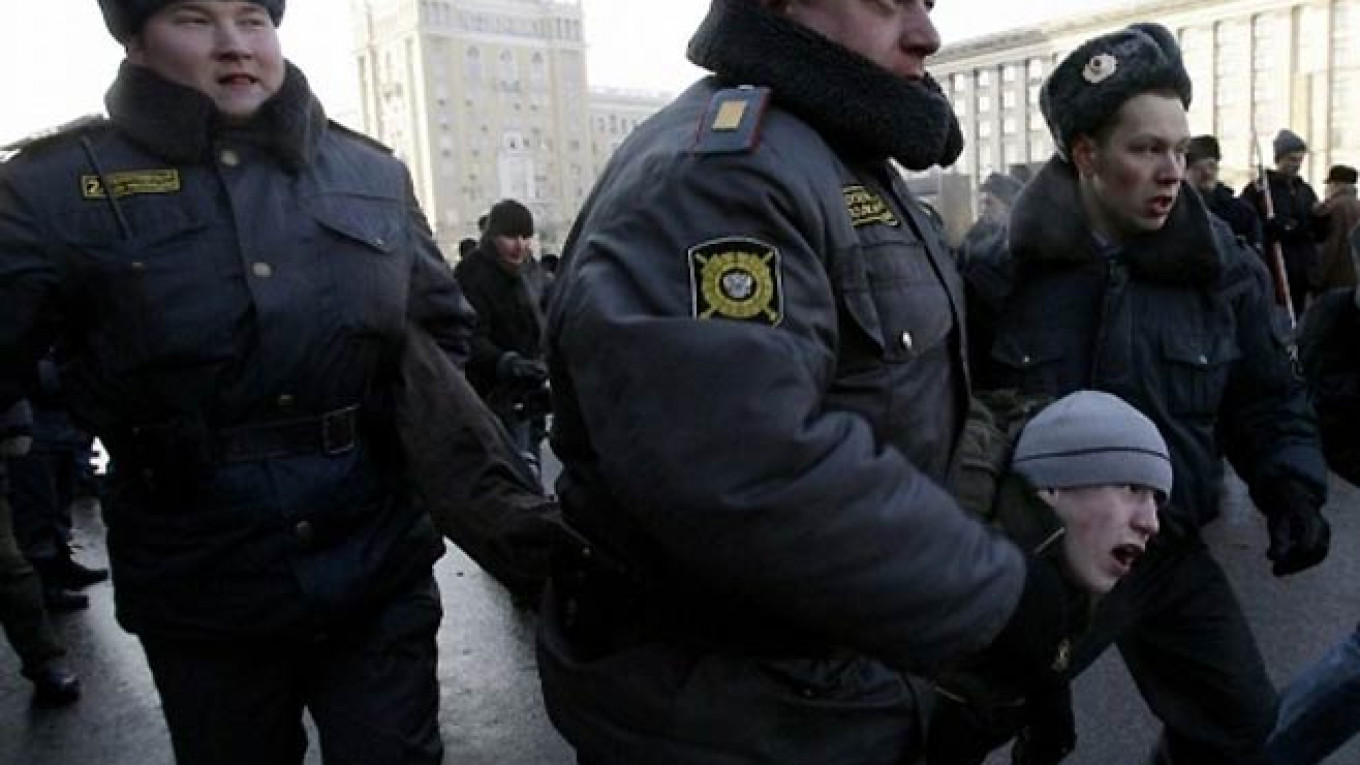In St. Petersburg late one evening a year ago, a man attacked two women in a half-empty metro car as it approached a station. He pushed one woman to the floor and kicked her and threw the other face-first against a window. He shouted at them: "Why aren't you wearing dresses? You have masculine haircuts. Damned lesbians!"
None of the other passengers on the wagon came to their aid, but when the train stopped at the station and the doors opened, the young women called out to policemen who just happened to be on the platform. They seized the assailant and, with the victims following, went to the police station located in the metro station. But the officers, after hearing the story, let the man go without so much as a warning and then turned to the women and said, "We do not like sexual perversions in this city."
Indeed, St. Petersburg has recently gained international notoriety as the capital of homophobia. This is the town that first passed a law banning the promotion of homosexuality to minors. This law was cited to sue pop singer Madonna immediately following a local concert in August 2012 at which she said a few words of support for the country's gay community on the stage. Of course, Madonna did not respond to the court summons and was tried in absentia.
The case was initially treated as an isolated event that generated a great deal of media interest. Within a few months, the State Duma passed a federal law based on the St. Petersburg legislation, and Russia was on its way toward a nationwide witch hunt against homosexuals and other LGBT members.
The lawmakers argued that the law was necessary to protect the young generation. They based their claim on the firm belief that propaganda causes adolescents to become homosexuals. In their view, homosexuals are obviously second-class citizens. One of the Duma deputies interviewed simply stated, "We are saving children from homosexuality."
What's more, a group of parents in Moscow wrote a letter to law enforcement officials demanding that a local school fire a teacher they claimed was a homosexual. After all, students must be protected from gay propaganda, they insisted.
Local newspapers published the letter and an investigation was launched to learn whether the gay teacher engaged in propaganda or directly seduced students. Neither allegation was substantiated, but the public outcry forced the teacher to quit, change his profession and move to another city.
On the day lawmakers passed the "anti-gay" law, a small group of LGBT activists picketed the Duma. Unsurprisingly, they were attacked by a crowd that included women holding icons, men with Cossack whips and, oddly enough, children.
What happened next was captured on video and photographs by the numerous journalists present. Russian Orthodox adults threw the protestors to the ground and invited the assembled children to kick them. The adults than handed the children condoms filled with feces and urine. Laughing, the youngsters threw the condoms at the protestors. Whooping and cursing obscenities, the group of children then chased the fleeing gays for more than a kilometer.
It is odd how Russia's "moral majority" are trying to protect the morality of the younger generation.
Andrei Malgin is a journalist, literary critic and blogger.
A Message from The Moscow Times:
Dear readers,
We are facing unprecedented challenges. Russia's Prosecutor General's Office has designated The Moscow Times as an "undesirable" organization, criminalizing our work and putting our staff at risk of prosecution. This follows our earlier unjust labeling as a "foreign agent."
These actions are direct attempts to silence independent journalism in Russia. The authorities claim our work "discredits the decisions of the Russian leadership." We see things differently: we strive to provide accurate, unbiased reporting on Russia.
We, the journalists of The Moscow Times, refuse to be silenced. But to continue our work, we need your help.
Your support, no matter how small, makes a world of difference. If you can, please support us monthly starting from just $2. It's quick to set up, and every contribution makes a significant impact.
By supporting The Moscow Times, you're defending open, independent journalism in the face of repression. Thank you for standing with us.
Remind me later.






